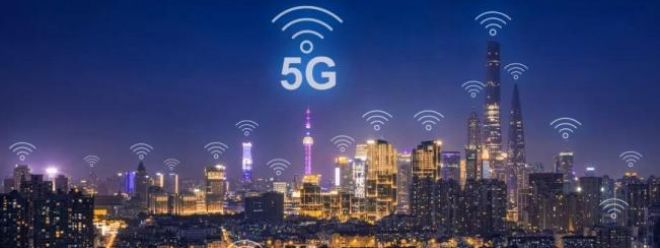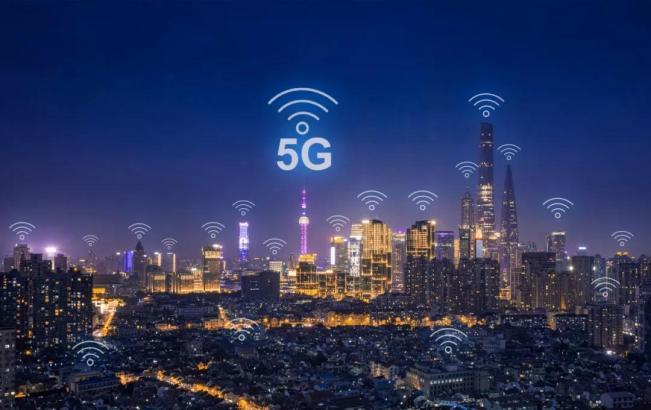Make up for the three shortcomings, 5G will promote the development of smart grid faster

The importance of electricity to mankind is self-evident. Whether it is daily life or production, it is almost inseparable from the demand for electricity. Based on this, the construction of power grids as a key carrier of electricity has always attracted attention. In the past, in the era when the infrastructure was not perfect, people were generally concerned about whether the power grid could be used; but now, with the continuous improvement of facilities and the continuous upgrade of demand, people’s focus is on whether the power grid is good or not. "Use" above.

Whether it is good or not, the specific measurement indicators are mainly as follows: one is whether the power supply of the power grid is stable and durable; the second is whether the power supply process is accurate and safe; the third is whether the operation of the power grid is energy-saving and environmentally friendly. In recent years, with the continuous emergence of new energies, new users, and new scenarios, the challenges and opportunities of grid operation and power supply have become prominent, and all aspects of demand have also ushered in important upgrades and changes. To realize the usefulness of the power grid, problems need to be solved to meet demand.
So, how to meet the new needs of power grid construction such as stability, durability, accuracy, safety, energy saving, and environmental protection? How to promote the new development and upgrade of the power grid? Undoubtedly, we need to rely on various technologies to build a smart grid and let the traditional Extensive power management is shifting to refined, with unmanned equipment replacing traditional manual operations, and solving various problems in traditional power grids. Prior to this, AI and robots have demonstrated their strengths, but now it is 5G's turn.
5G can empower smart grids
Smart grid must be familiar to everyone. It specifically refers to the use of various smart technologies to achieve economic, efficient, safe and clean development of grid operation and management. The commercial launch of 5G, as well as the development of base station construction and applications, play a key role in enabling smart grids. If AI, Internet of Things, robots, etc. make my country's smart grid construction start to fruition, then the emergence and empowerment of 5G is expected to further accelerate the maturity of smart grids.
With the characteristics of high efficiency, low latency, and large capacity, 5G empowered power grids can exert significant value. Whether it is on the power generation end, transmission end, substation end, distribution side, power consumption end or emergency communications, 5G can participate in operations. Under the direct action of 5G, not only the grid transmission can become faster and more stable, but also grid fault monitoring and load control can be more accurate. At the same time, the collection of electricity consumption information and the measurement and management of electricity will be easier and simpler.
In addition, 5G can also enhance the intelligent operation and maintenance of power grids through the combined application of intelligent equipment such as robots and drones. For example, 5G+ robots/drones can be used in the field of power inspections, by replacing manual inspections, so that the traditional inspection methods will be upgraded and transformed in the direction of safer, more efficient, accurate and low-cost. It is equally significant in terms of full maturity.
Both sides need to make up for shortcomings in integrated development
However, although 5G has obvious enabling value for smart grids, as the current 5G development is still in its infancy, it has many limitations and problems, and there are also many obstacles to its integration and development with smart grids. In this context, if 5G wants to penetrate the power grid field and promote the continuous acceleration of intelligent development, it also needs to make up for its own shortcomings. Intelligent Manufacturing Network believes that the current 5G shortcomings and urgently needed to make up are mainly the following three points:
One is the construction of 5G private networks. As we all know, 5G has a high demand for the number of base stations due to its own characteristics. At this stage, although my country has built the world's largest 5G network and infrastructure, its private network construction is still not perfect. 5G empowered power requires specialized base station facilities to meet demand, but the current 5G private network construction technology is relatively high, costly, and needs to overcome the constraints of the terrain environment, and it is not easy to build.
The second is 5G application security. After the power is connected to the network, although data-based and information-based management have brought many benefits to power operation and maintenance, it also exposes the security of the power grid to danger. Especially after 5G access, the possibility of intrusion and leakage of power grid information data will increase significantly, which will bring major security risks to power grid operation and maintenance and application, and lead to economic losses. Therefore, it is necessary to strengthen security precautions while introducing 5G.
The third is the 5G industry standard. Regardless of 5G or the power industry, the cooperation between the two parties is unprecedented, so the standard construction is a problem. The formulation of a standard for both 5G and the power industry is not only a key prerequisite for the integrated development of the two, but also an important guarantee for future mature development. But at present, since 5G is still in the early stage of development, it is not easy to formulate standards, and continuous exploration and experimentation are needed.
【Editor's Choice】

